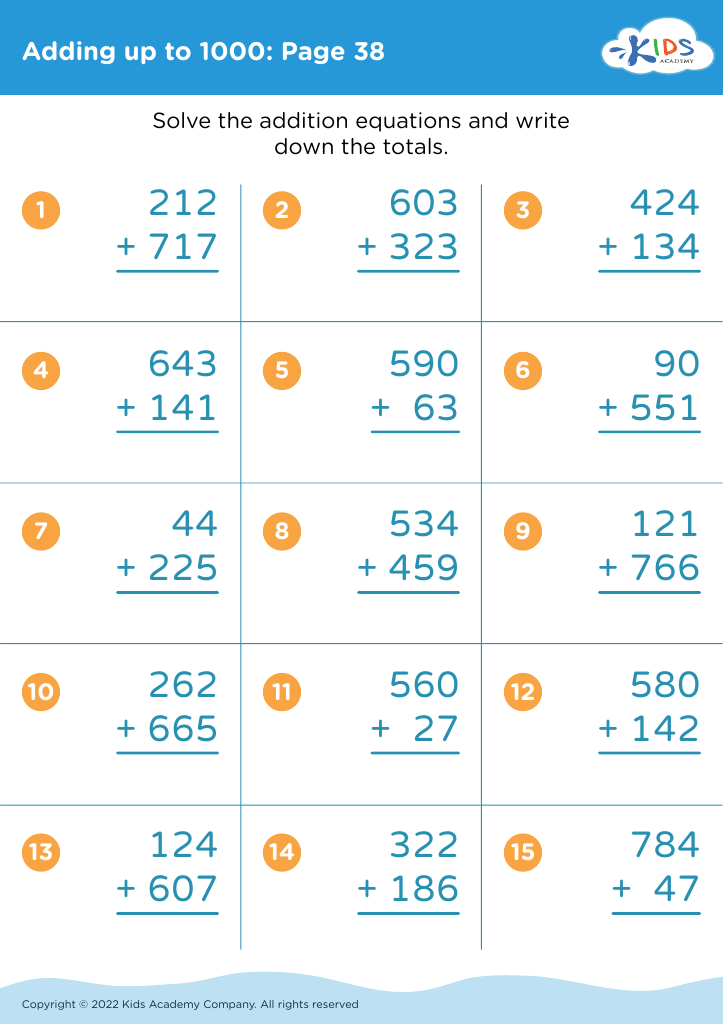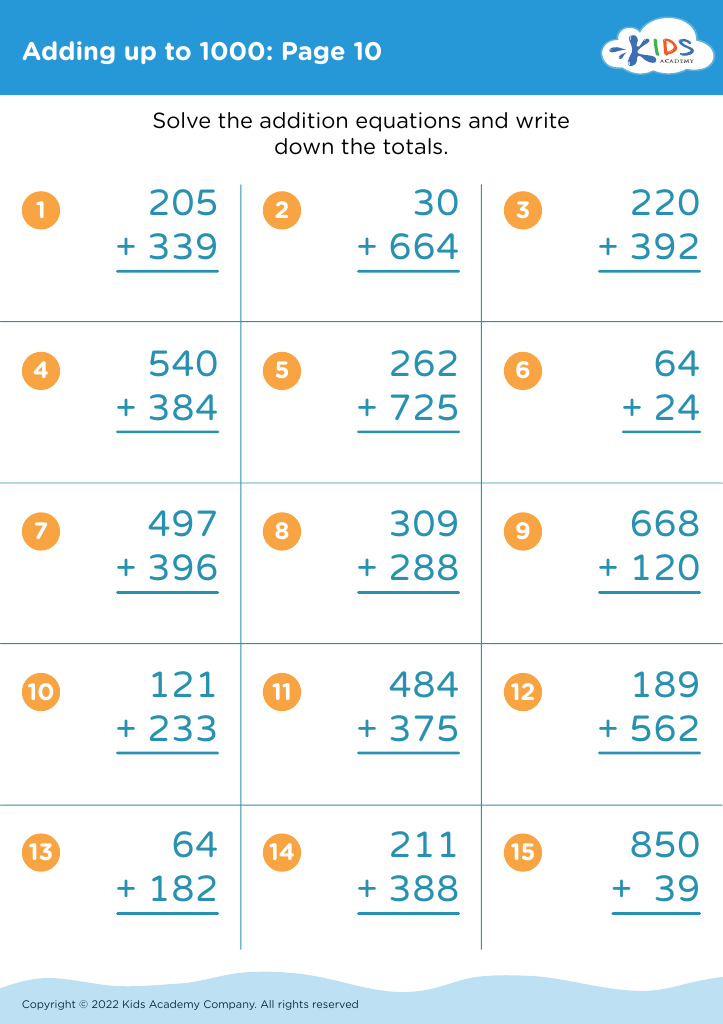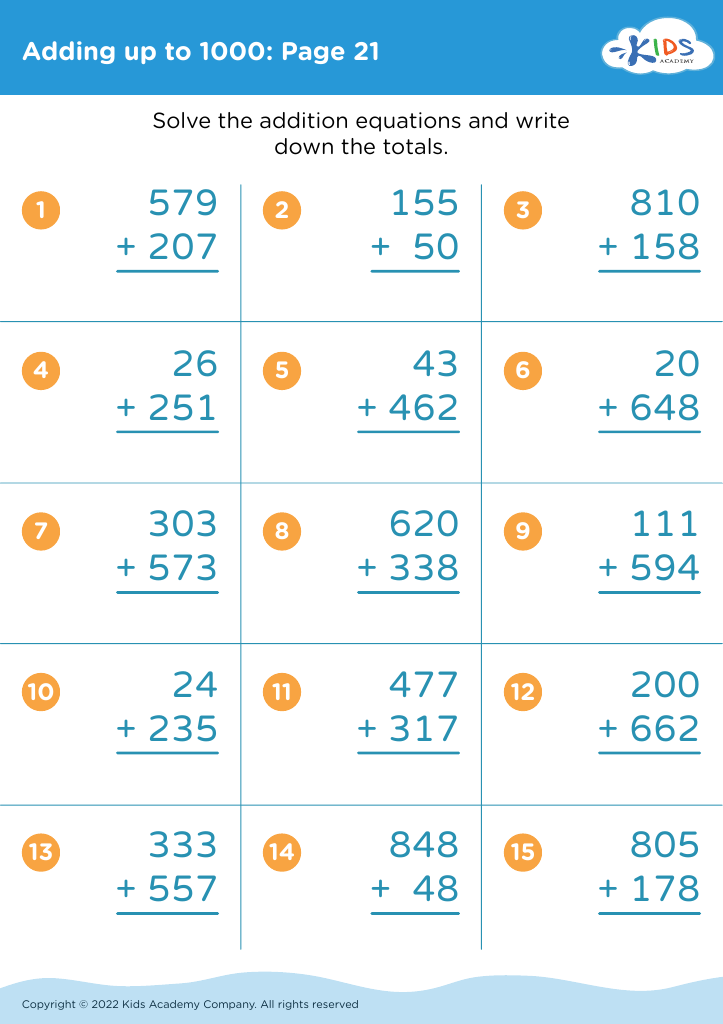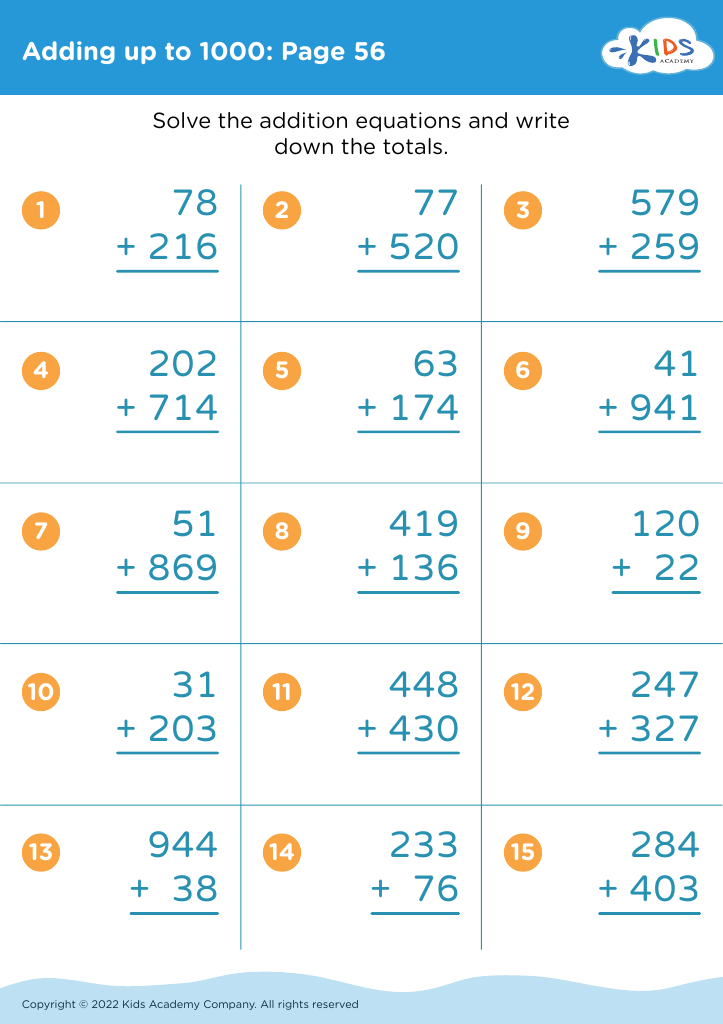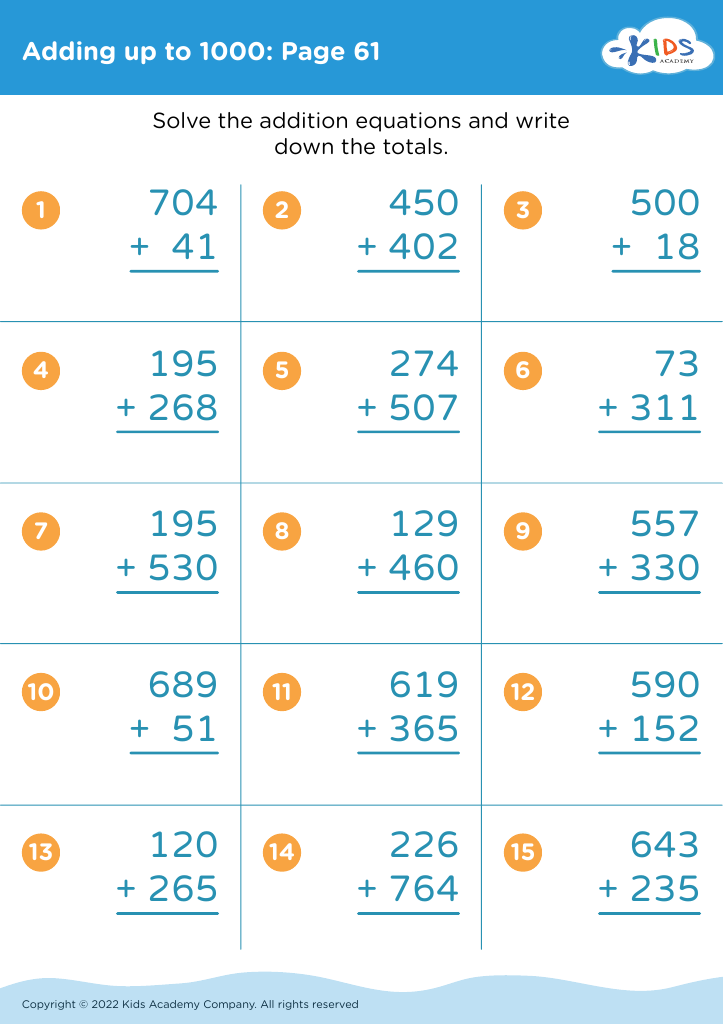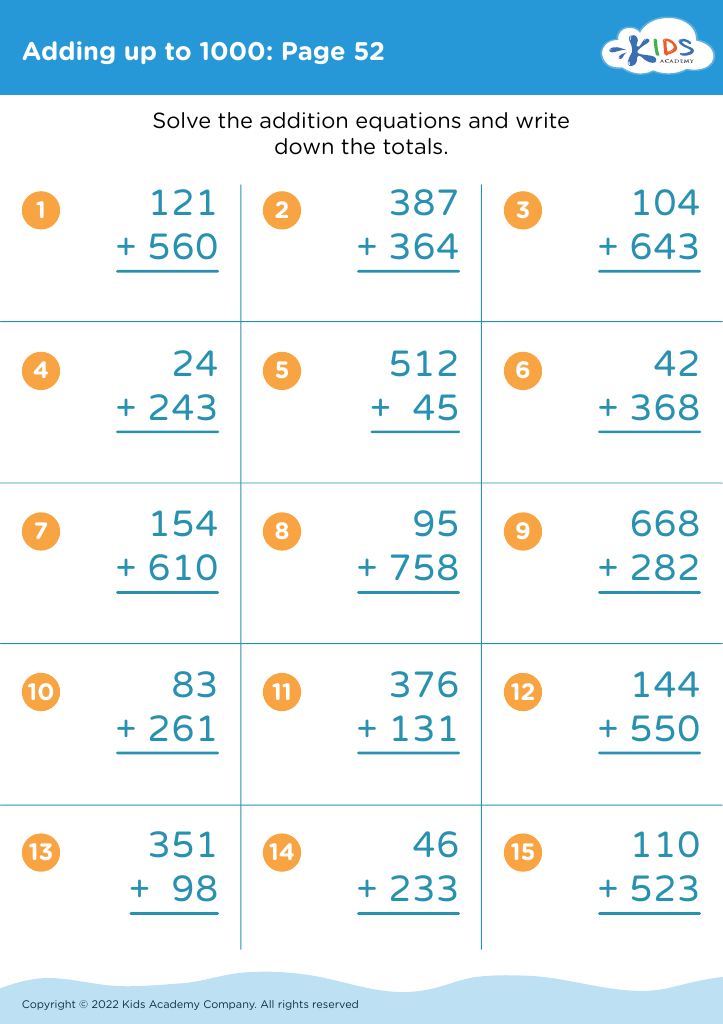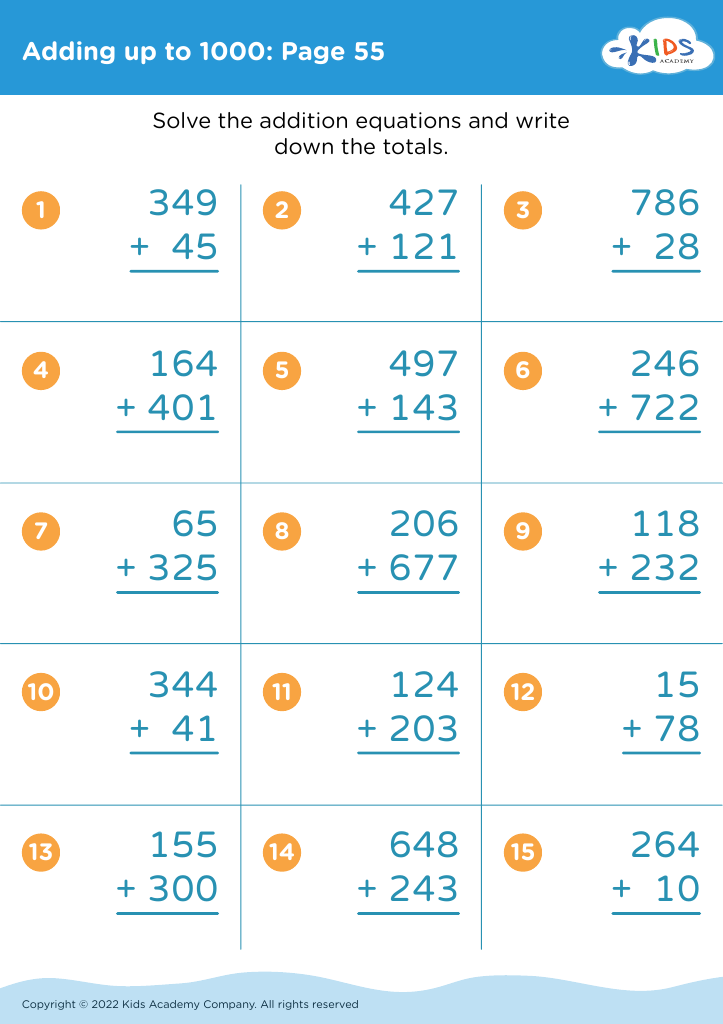Problem-Solving Skills Adding up to 1000 Misc Worksheets for Ages 6-8
14 filtered results
-
From - To
Boost your child's problem-solving skills with our comprehensive collection of 1000 addition worksheets designed specifically for ages 6-8. These engaging and interactive worksheets focus on the concept of adding up to 1000, providing diverse challenges that enhance critical thinking and mathematical reasoning. Ideal for reinforcing classroom learning or supplementing home education, our materials cater to various learning styles, ensuring every child can thrive. As kids practice solving unique problems, they become more confident in their math abilities. Watch them develop essential skills while having fun with math! Start your child's journey to becoming a proficient problem solver today!
Problem-solving skills are essential for children aged 6-8, as they form the foundation for academic success and future life skills. At this age, children are developing critical thinking, collaboration, and decision-making abilities. Engaging them in problem-solving activities fosters cognitive growth, encouraging creativity and flexibility in thinking.
Parents and teachers play a pivotal role in this development by introducing challenges that require children to figure out solutions, enhancing their confidence and public speaking skills. Activities such as puzzles, group projects, or math challenges that total 1000 are effective tools for developing these skills; they require children to analyze problems, formulate strategies, and communicate their reasoning.
Moreover, cultivating these skills early helps students navigate not only academic obstacles but also social situations, fostering resilience. As they practice these skills, children learn the significance of effort and initiative, improving their independence and teamwork.
Investing in problem-solving opportunities at this age can create lifelong learners who approach challenges with a positive mindset. Consequently, when parents and teachers prioritize these skills, they empower children to become resourceful and adaptive individuals equipped for the complexities of the world.
